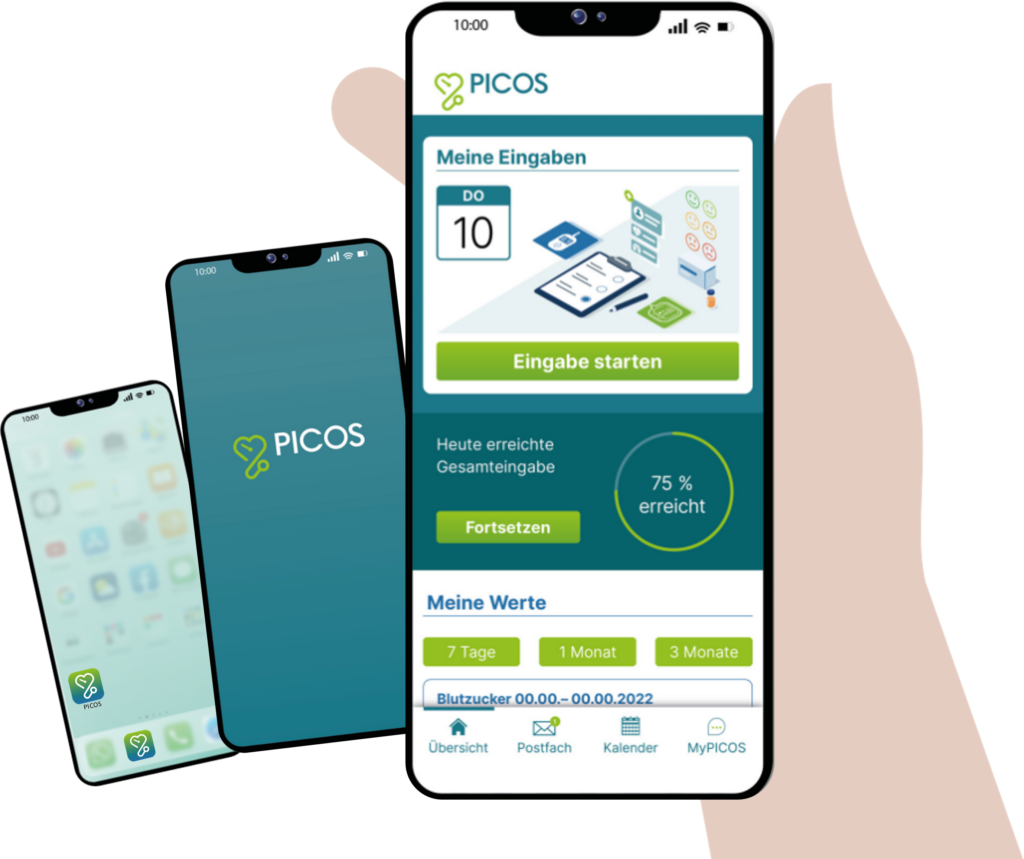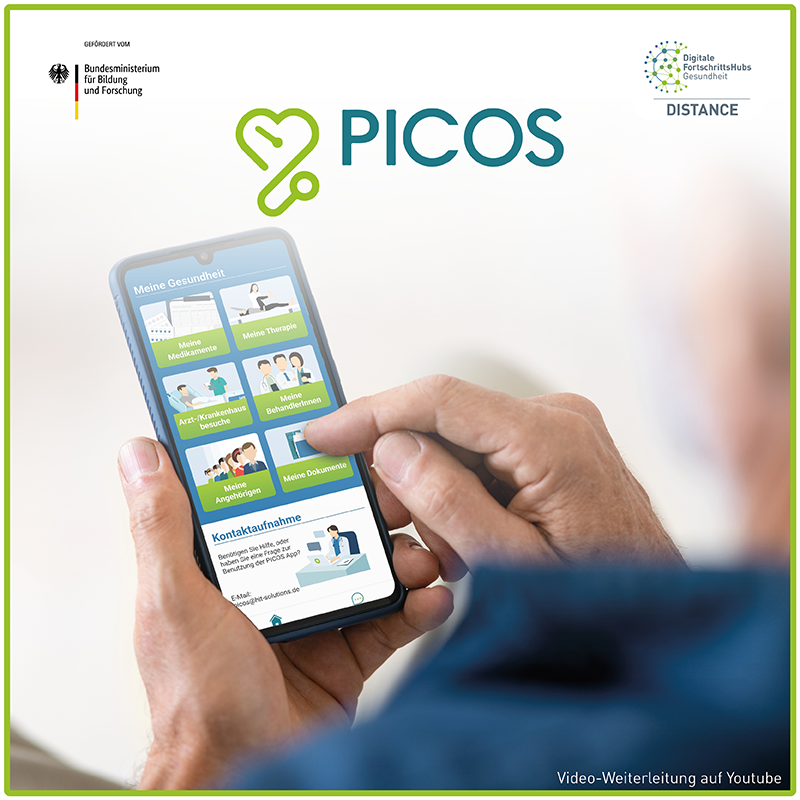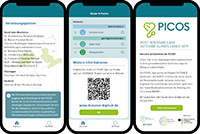
PICOS App
Digital support in post-ICU care
After a stay in an intensive care unit, many patients frequently experience mental and physical symptoms such as concentration problems or muscle weakness. Such symptom patterns are grouped under “Post Intensive Care Syndrome” (PICS). In addition to possible limitations in quality of life, long-term inpatient treatment and outpatient follow-up care may be required.
The DISTANCE project, funded until September 2025 by the Federal Ministry of Research, Technology and Space, aimed to improve aftercare following an intensive care stay. As part of DISTANCE, the PICOS Study was conducted to research the physical and mental effects of an ICU stay and to develop improved treatment options. More than 200 former intensive care patients from nine regional healthcare facilities documented their physical and mental symptoms for one year after their ICU stay, in order to enable better treatment for themselves and for future patients.

How patients benefited from the PICOS Study
With the PICOS App, they were able to document their physical and mental condition, e.g., sleep duration and quality, physical activity, or blood pressure.
The PICOS App provided them with a long-term overview of the development of their health status.
They could use the app as a planner for taking medication, doctor’s appointments, and other therapeutic measures.
As part of follow-up examinations, they regularly had the opportunity to speak directly with a physician.
The PICOS App: support for everyday self-care
The PICOS App accompanied former intensive care patients in their recovery process after hospital discharge. By regularly entering information about their physical and mental well-being into the app, they received a comprehensive overview of their individual health status. In addition, four follow-up examinations were conducted during the study to gather further information on their health.
Future patients can also benefit from the PICOS Study: use of the app generated data that helps advance the development of new treatment and therapy options for intensive care patients. These data were encrypted and made available to medical researchers in compliance with applicable data protection regulations.
Patients were able to use the PICOS App once a study assistant had informed them about it and set up the mobile application on their smartphone.
This is how the PICOS study was conducted:
Patients’ needs were taken into account
Patients who experience physical and mental symptoms after an ICU stay have specific needs when using a health app. To ensure that the PICOS App would meet these needs, a preliminary study surveyed 123 intensive care patients about their wishes and expectations for the app.
The initial feedback was consistently positive. Patients regarded the app as a valuable self-management tool that increased their involvement in their own healthcare. Based on the findings of this preliminary study and further user surveys, the PICOS App was further developed both in terms of content and technology.
PICOS-App | Informations for Patients
Status: 04/2024
German Sepsis Help e. V. represents patients in DISTANCE
To ensure that the needs of patients were addressed beyond the study phase, the German Sepsis Help e. V. (Deutsche Sepsis-Hilfe e. V.) supported the DISTANCE project as a patient organization. With over 350 members, the association advocates for the interests of people affected by sepsis and their relatives.
Sepsis is an excessive or insufficient immune response to an infection that can lead to life-threatening organ failure. Causes may include bacteria, viruses, or contaminated open wounds, which is why sepsis can especially occur during a hospital stay. People with sepsis often require treatment in an intensive care unit. Representatives of the German Sepsis Aid Association advised the DISTANCE project on developing the PICOS App and promoted its use within the organization.



